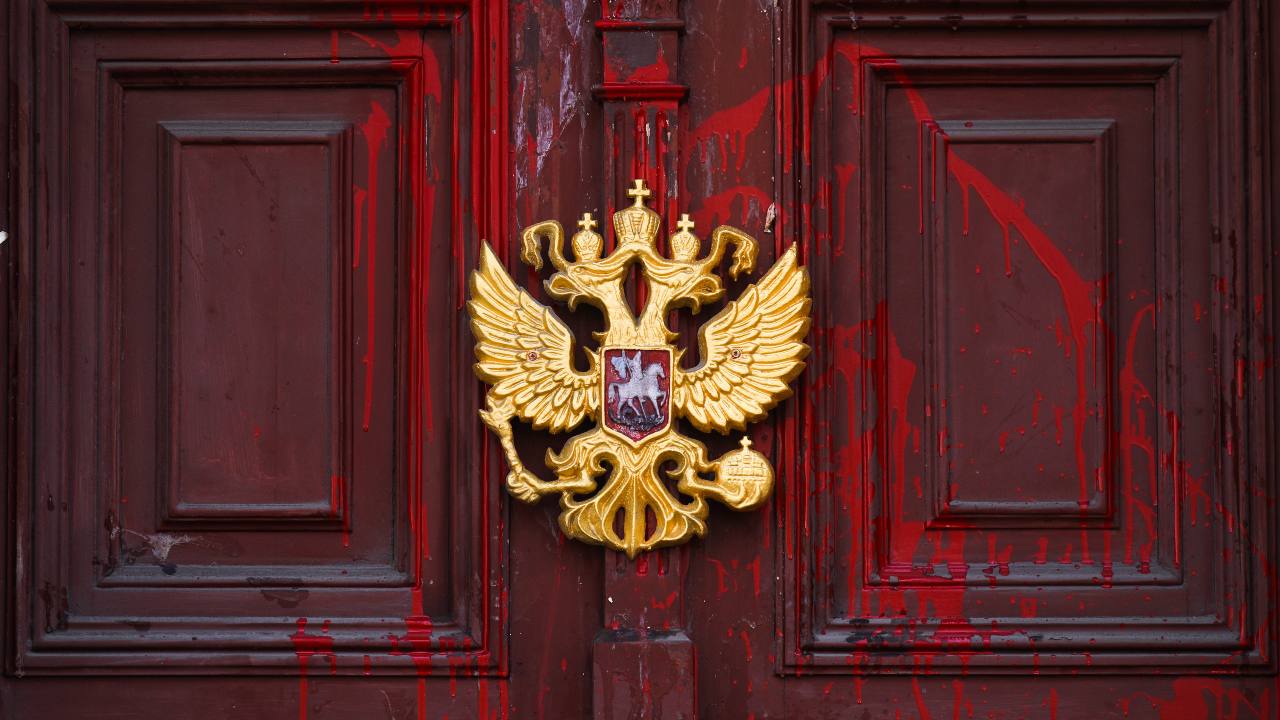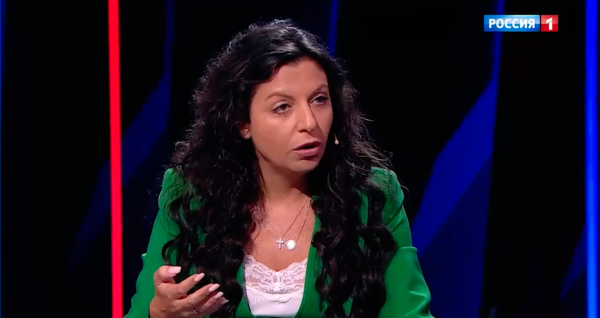While some commentators suggest that Ukraine is currently winning the information confrontation with Russia — and there are certainly fewer Westerners defending Kremlin’s speaking points today than in 2014 and the following years — there is one element where the communication of Ukrainians and some in the West begins to diverge.
This potentially divisive point may well determine how Russia is treated once the war ends. The question is this — who is responsible for the current war in Ukraine? German Chancellor Olaf Scholz said: “[Putin] alone decided on this war, not the Russian people. He alone bears responsibility for it”. Some Ukrainians also detected an echo of these words in President Biden’s Warsaw speech with the sentence “you, the Russian people are not our enemy.”
In contrast to this, there is a #NotJustPutin campaign being run by many Ukrainian journalists, researchers, and activists. Very similar messaging was used by the Ukrainian StratCom Center and even by Foreign Minister Dmytro Kuleba.
There are strong arguments for both positions. Those who try to put all the blame on Putin want to differentiate between him and the “ordinary Russian people” who, according to this mindset, might not want war. Those who live under the dictator should not be made responsible for the dictator’s actions.
It was an argument that we used in the EUvsDisinfo campaign, too: we didn’t want to speak about the “Russian disinformation campaign” and instead preferred the term “pro-Kremlin disinformation campaign.” We wanted to make clear that we do not identify Putin or the Kremlin with the whole of Russia (which is a message that the Kremlin propaganda tries to spread, when every criticism of the leader is equated to criticism of the country and nation, often employing the Kremlin-created buzzword of Russophobia), and that we are aware of the brave journalists in TV Dozhd, Novaya Gazeta, or Roman Dobrokhotov’s The Insider who are doing a brilliant and highly dangerous job, and who are the opposite of state-compliant mouthpieces.
For countries with a large Russian-speaking minority, such messaging might help to avoid alienating their own population, while making it clear that they stand with Ukraine.
And for future relations with post-Putin Russia, this position has obvious benefits.
However, the #NotJustPutin campaign is also a solid argument. The frequently cited opinion polls according to which the majority of Russians support the war might not persuade everyone: in a dictatorship, opinion polls are not reliable, some Russians themselves admit that they are afraid to give their true opinion to pollsters.
However, as highlighted by Lev Gudkov from the Levada Center, the important thing is the “conformity and the expression of loyalty”, the way people behave in the public sphere, as opposed to the way people really think. What you do matters more than what you claim to think (once Putin falls, there will be millions of people who will say “but we never believed the regime”, just like they were there after the fall of the USSR.) The fact that Russians are clearly not protesting the war in numbers that would threaten the Kremlin’s decision to launch its adventure is more important and has a bigger effect on real life than what Russians say in the privacy and safety of their own kitchen. Moreover, there is a fair amount of evidence that many “ordinary Russians” so actually believe the Kremlin’s propaganda, even when presented with evidence of the Russian Army’s crimes in Ukraine even by their family members (here; here; and here).
Another reason is that messaging making Putin alone responsible offers the Russian elites an easy way out of the situation: just get rid of the leader and return to business as usual. Given Ukraine’s experience with Western irresolution towards Russia following the annexation of Crimea and the first invasion of Ukraine in 2014, it is not difficult to understand their fear that the West will snatch the first olive branch offered, however puny. Ukrainians feel being pushed by Western partners toward any kind of peace, even if it suits better Russia at their expense.
Such a quick return to business as usual would not only anger many Ukrainians who demand justice for the crimes that the Russian Army has committed in their country, it would also be dangerous for the future. As recently described by Eerik-Niiles Kroos (a similar point is made by Garry Kasparov in Winter is Coming, and by Keir Giles), the failure to punish the Kremlin’s past crimes is a major reason encouraging it to commit new ones.
Finally, assigning blame to Putin alone takes no account of those who put him in power. Putin could not have become the Putin of 2022 without multiple thousands of assistants: without the organized crime syndicate from Saint Petersburg and from the KGB; without the whole government and a rigged justice system that destroyed every Kremlin critic over the years; without those who murdered Anna Politkovskaya, Alexander Litvinenko, Boris Nemtsov, and many others.
Putin could not have become today’s Putin without the many thousands of thugs in the Kremlin’s services who beat up and jail anyone protesting Putin’s injustices; nor without the thousands of propagandists and censors who ensure that there will not be too many people protesting. He couldn’t have become the Putin of 2022 without the army committing war crimes way before 2022 (soldiers are not obligated to obey unlawful orders, it is their choice), and without the secret services liquidating Putin’s opponents both in Russia and abroad. He couldn’t have become the Putin of today without the agents, collaborators, fellow travelers, and useful idiots outside Russia who helped him and his entourage to launder the dirty money stolen from the Russian people, and to launder the disinformation campaigns originating in the Kremlin and spread further by politicians and influencers in the West.
If justice is to be served, the role of all these people needs to be called out, tried in a court of justice when appropriate, with crimes punished and reparations paid. These would be processes not dissimilar from the Nuremberg trials, given the criminal nature and the longevity of Putin’s regime.
If justice is not served, it might only be a question of time until we face another Kremlin dictator claiming that the downfall of Putinism was the biggest geopolitical catastrophe of the 21st century, claiming once more that he has the right to decide which nations and which people have the right to exist.
The #NotJustPutin represents a better approach to avoid yet another iteration of a Kremlin strongman seeking to destroy the rules-based order. It remains to be seen whether the West will have the wisdom to avoid a repetition of past mistakes and recognize that genuine change among the Russian elite is the best way to reinforce Ukrainian democracy and make Europe safe again.
Jakub Kalenský is a senior analyst at the Hybrid CoE in Helsinki focusing on Russia and disinformation. He also worked in the Atlantic Council’s DFRLab and in the EU’s diplomatic service EEAS, where he founded the EUvsDisinfo campaign.
This text represents his opinions only and does not reflect the position of his employer.




